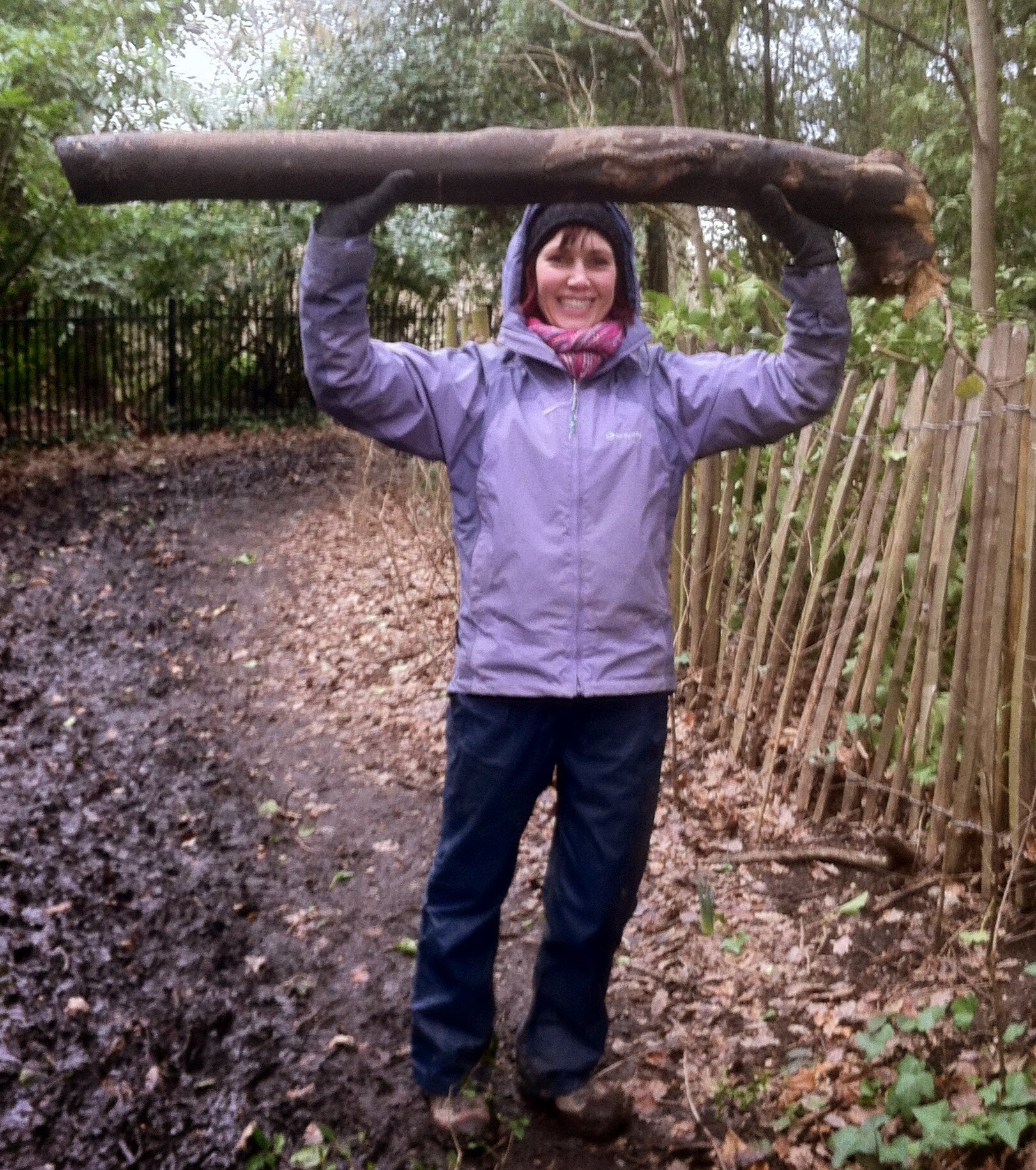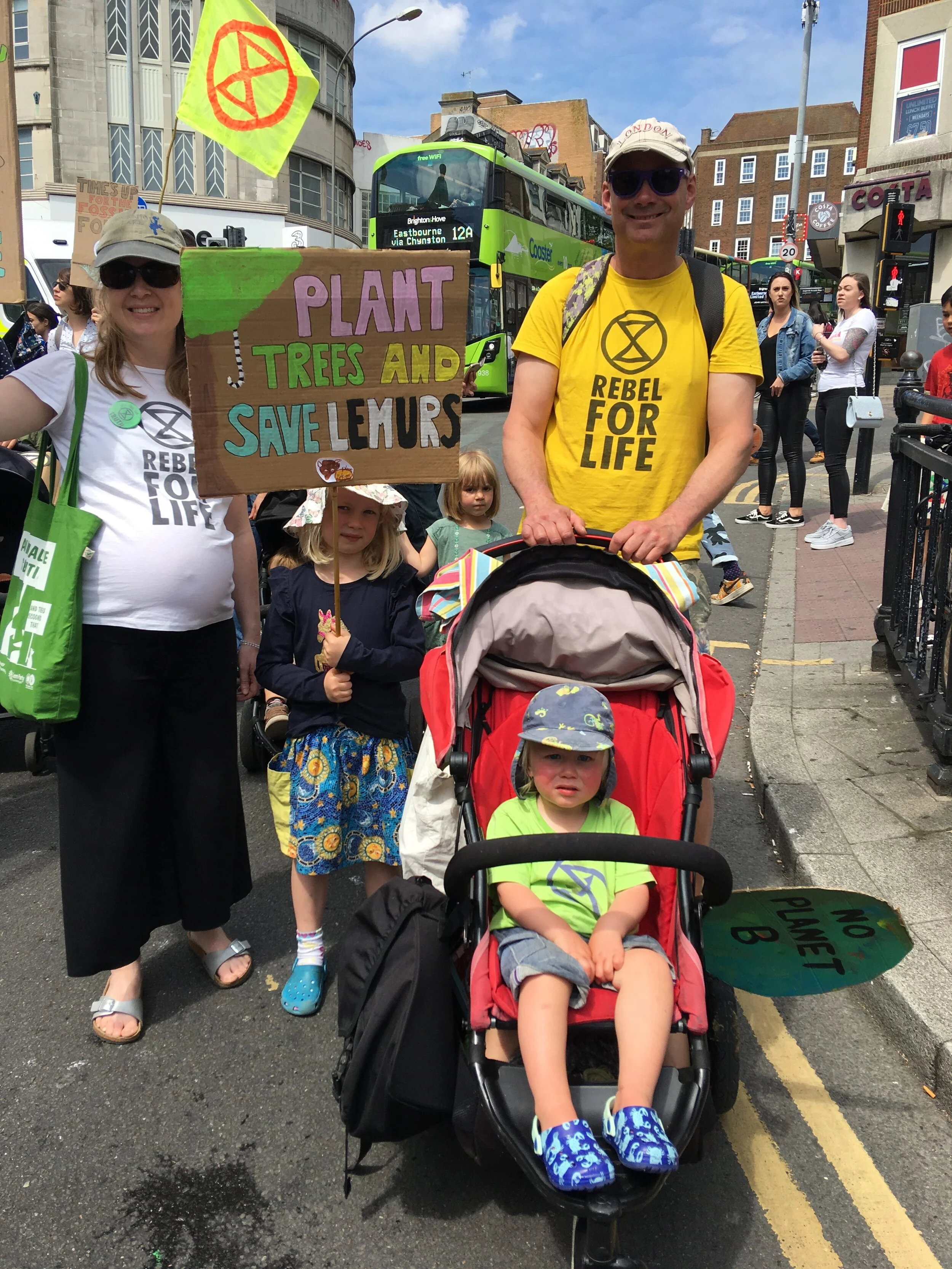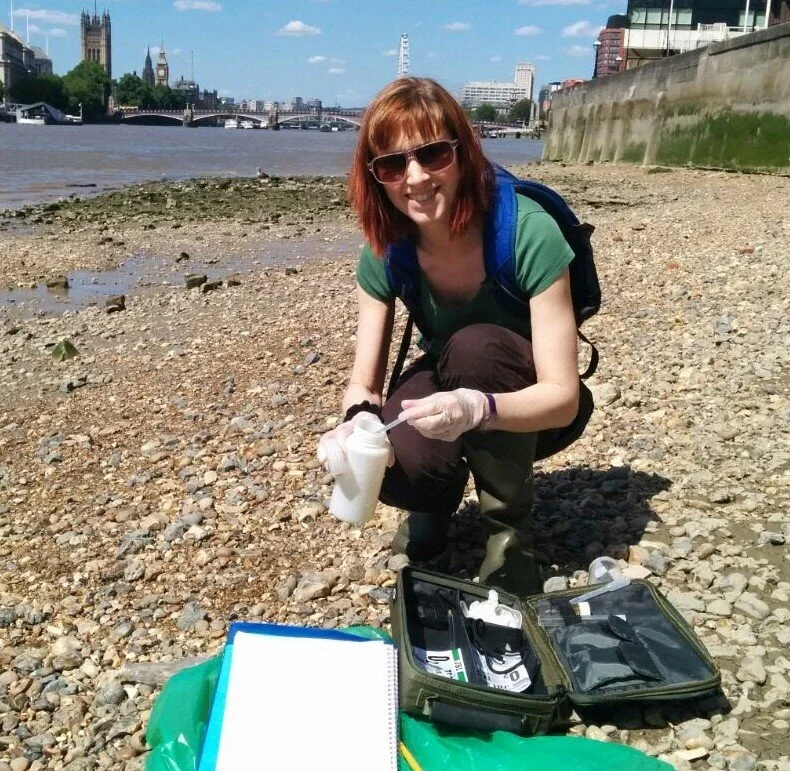Why families are important in the fight against climate change…
Hello there! My name is Lisa Howard and I am a PhD researcher in Sociology at the University of Edinburgh.
By way of an introduction, my route to environmental action began with a childhood love of animals and the great outdoors. Hopes for a career in wildlife conservation never quite materialised because like many people, I believed that a good life = good income. Fast forward a few decades and I reignited my connection to nature through the joy of volunteering . I managed woodlands, cleaned up river pollution, and led community nature engagement sessions. I found the opportunity to connect with other like-minded people hugely enjoyable and mentally rewarding, and it felt so good to be part of something bigger.
Then in 2014, somewhat bored with my career I decided to retrain and embarked on a part time Bachelor’s degree in environmental management at Birkbeck College. The course was a revelation: it opened my eyes to the political and economic dimensions of climate change and other environmental problems. I learned just how complex these issues are from a scientific, social and political perspective. In particular, I was fascinated by the role that power structures play as a driver of global inequality and climate change. But learning this also alarmed and horrified me. I felt the urge to escalate my volunteering to something more politically potent, and got involved in climate activism. My environmentalism and my academic career progressed, and today I’m a PhD researcher at Edinburgh University exploring the intergenerational issues of climate change and how families are trying to address these concerns collectively.
Rather than bore you further with my life story, the purpose of this blog piece is to share some of my thoughts and understanding from my research on the importance and strengths of families in taking collective action on climate change, with the hope this will in some way provide some encouragement.
Climate change is fundamentally an intergenerational issue: the benefits of burning fossil fuels were enjoyed by generations before us, yet the burdens these emissions have created are felt both today and will continue to be felt for generations to come. It is this generational aspect that gives families a personal and important stake in the fight against climate change. As a sociologist I am interested in how the climate crisis connects to the ‘family ties that bind us’, and I believe this quote by Al Gore is a good starting point:
“Imagine with me [ … that] time has stopped – for all of us – and before it starts again, we have the chance to use our moral imaginations and to project ourselves across the expanse of time, 17 years into the future, and share a brief conversation with our children and grandchildren as they are living their lives in the year 2023. Will they feel bitterness toward us because we failed in our obligation to care for the Earth that is their home and ours? Will the Earth have been irreversibly scarred by us? Imagine now that they are asking us: “What were you thinking? Didn’t you care about our future? Were you really so self-absorbed that you couldn’t — or wouldn’t — stop the destruction of Earth’s environment?” What would our answer be? We can answer their questions now by our actions, not merely with our promises. In the process, we can choose a future for which our children will thank us. “
(Al Gore, The Inconvenient Truth, 2006, p.11).
But choosing a future for our children has never been an easy battle to win. Climate change has been known about for over thirty years, yet greenhouse gases and atmospheric warming have continued to rise year on year. We are on course for global 1.5˚C above preindustrial levels by 2040, a level of warming that will widen and deepen the threat to life on earth. While the science is serious and unequivocal, those in power have acted otherwise. Neoliberal attempts to reconcile the protection of the planet with capital and profit have culminated in the voluntary pledges to cut emissions seen at the Paris Climate Accord in 2015. This has effectively enabled national governments and their economies to continue ‘business as usual’ within ideological frameworks of ‘green’ growth and ever-increasing consumption. The failure by the world’s richer nations to take bold and rapid action to confront the capitalist status quo means planetary boundaries will continue to be breached into the near future, setting us on a trajectory of 3˚C rise by the end of the century.
There has also been a failure of civil society to adequately address the issue. Decades of work by environmental groups and charities through conventional campaigning have brought about piecemeal wins in areas such as fossil fuel divestments and the halting of dirty energy projects, but little headway has been made in the war on the economic and political order that underpins climate change. Perhaps environmental organisations’ biggest failure is their inability to cut through to and mobilise the wider public who, while sympathetic to the sounding of the alarm bell, remain largely passive to activating these concerns. As a result, within the last two years new grassroots climate movements have emerged that are born of frustration, fear and anger at government inaction and the ineffectiveness of rhetorical strategies used by environmental organisations before them.
The youth climate movement is one such example. Inspired by teenager Greta Thunberg’s Friday school strikes, children and young people signal to world leaders their seriousness and willingness to sacrifice their education to stand up for their beliefs. The youth climate movement’s politics are personal, highlighting the harms of climate inaction with the powerful narrative of a stolen future. This has captured the attention of all sections of society, forcing world leaders to listen to children who are rarely given a platform to speak, and cannot yet cast their vote at the ballot. Children and young people’s voices have hammered home their intergenerational right to a viable future and underscored the futurity of today’s inaction on climate change.
For people without the ‘biographical availability’ to attend protest marches, other forms of action have enabled the tackling of environmental issues. In solidarity with the youth climate movement, parents and families have mobilised collectively across the UK and other parts of the world, effecting change at the local level. Some have succeeded in getting local councils to declare a climate emergency, and pledges from primary schools to put climate on the curriculum, wins which are significant. Social movement theory tells us that ‘framing processes’ – the interpretation of grievances or threat, are integral components in the formation of a movement. Parents’ sense of near-term threats to children’s environmental future has spurred a cognitive and emotional collectivisation, driving a moral imperative to safeguard. Parent-led movements have formed to provide advocacy, a voice for the voiceless, for infants and for those children who are currently too young to campaign for themselves.
There are several unique strengths of parent and family-led movements acting on climate change. First, families can represent and highlight the strong links between climate change, intergenerational responsibility and human rights for children. These issues are not currently well reflected in policies or debate at the international, national or local level. The United Nations Convention on the Rights of the Child (UNCRC) is a legally binding international agreement setting out the civil, political, economic, social and cultural rights of every child. These rights include life, survival and development, and protection from violence, abuse or neglect. While children may be entitled to a range of legal and human rights, their relative lack of ability to defend these rights place them in a category similar to that of unborn generations, the articulation of whose rights hinge on the current adult generation.
Justice frameworks concerning climate intergenerationality, linked to rights and responsibilities, have been chronically under-represented in policy discourses on climate change. This is in part due to critiques raised against intergenerational equity: that future generations are not capable of having rights and that there is no certainty surrounding what future generations want. Parent advocacy plays an important role in the argument for intergenerational justice because it creates and disseminates real-life knowledges about responsibilities and obligations towards here-today humans, rather than arguing for the abstract entity of a ‘future generation’. These knowledges could play an influential role in conversations with policy and lawmakers and would be further strengthened with the participation of children and young people in the development of climate intergenerational justice policy.
Parents vocalising their climate concerns can represent relatable, everyday worries for protecting loved ones and can help dispel the image of environmentalism as a privileged lifestyle choice concerned only about nature. Narratives of intergenerational responsibility and the human rights of children are more likely than depictions of polar bears on melting ice caps to secure public support for the drastic action required to reduce greenhouse gas emissions. The visibility of the child whose life is at stake gives reality and emotional proximity to the future. But care must be taken not to depoliticise the fight for children’s future, as children’s backgrounds are diverse and there are many whose socioeconomic disadvantage will mean they bear the brunt of both climate change impacts and any fiscal measures to mitigate it. In addition, there are many parents who do not hold the social and economic capital to become involved in climate social movements. Injustices and inequality within our current generation could be included in campaigning messages by way of expanding the ethical scope to the future of other people’s children.
My final point concerns the power of parents and children to foster norms of ethical and environmental awareness within family life. There is a large body of research that documents how family practices such as climate activism and ethical consumption at home pass on environmental knowledge and values of altruism and civic mindedness to children. In addition, research has found that school-age children can be the primary learning catalyst in some families, where the child’s knowledge is willingly accepted by the family members. Other important influencing processes are to be found in the everyday conversations that parents have with friends and relatives about climate crisis concerns and action. This is called ‘relational activism’, which involves demonstrating and encouraging the importance of behavioural commitment to addressing climate change and can inspire others to take action.
I conclude by referring to my earlier point on intergenerational responsibility at the policy level, and consider how we might catalyse this. At the time of writing, there is currently a Bill (draft law) at the House of Commons stage called the Wellbeing of Future Generations Bill, which would bring meaningful change for the wellbeing of our children and grandchildren. The measures proposed in the Bill could facilitate the achievement of the ‘net zero’ target prescribed in section 1 of the Climate Change Act 2008.
Do check out the links below to learn more:
About the Future Generations Bill
How you can contact your MP to get them to support a Bill (perhaps reminding them of the United Nations Convention on the Rights of the Child):
‘Intergenerational equity can help to prevent climate change and extinction’
The reading of the Bill in Parliament for the second time is on 27th November 2020. Please write to your MP and ask them to support this Bill.
Lisa Howard is a PhD sociology researcher at the University of Edinburgh.
Her work is on concerned parents acting to fight climate change. If you would like to learn more about participating in her study, please contact her at https://blogs.ed.ac.uk/climateactionfamilies/
(a £25 donation will be made to Just One Tree for every participant)








